Hibiscus Flowers
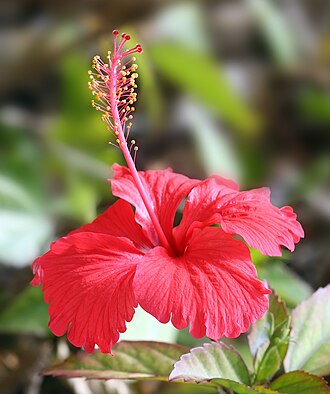
The overall appearance of hibiscus flowers is bold and exotic, making them a popular choice for gardens, decorations, and floral arrangements. Their stunning colors and large size make them a focal point wherever they are displayed. Hibiscus flowers are large, vibrant, and trumpet-shaped, making them one of the most striking and recognizable flowers in the world.
Ingredients:
Rich in Antioxidants
Lowering Blood Pressure
Aiding Digestion
Boosting Immune System
Weight Management
Anti-inflammatory and Antibacterial
Menstrual Health
Preperation:
Rich in Antioxidants: Hibiscus flowers are packed with antioxidants, which help combat free radicals in the body. This can prevent cell damage and reduce the risk of chronic diseases such as heart disease and cancer.
Lowering Blood Pressure: Hibiscus tea is well-known for its ability to lower blood pressure. Regular consumption of hibiscus tea can help in managing hypertension, contributing to cardiovascular health.
Aiding Digestion: Hibiscus has mild diuretic properties and can help in promoting digestion. It is often used to relieve bloating, constipation, and other digestive issues.
Boosting Immune System: Hibiscus is rich in Vitamin C, which is crucial for a healthy immune system. It helps in fighting off colds, flu, and other infections.
Weight Management: Hibiscus tea is also known for its role in weight management. It can help reduce the absorption of carbohydrates, promoting a healthy weight.
Anti-inflammatory and Antibacterial: Hibiscus has anti-inflammatory and antibacterial properties, making it useful in treating minor infections and reducing inflammation in the body.
Menstrual Health: Hibiscus is used in some cultures to regulate menstruation and alleviate menstrual cramps due to its ability to balance hormones and reduce uterine spasms.
Spiritual Properties
Symbol of Love and Passion: Hibiscus flowers are often associated with love, passion, and beauty. In many cultures, they are used in rituals or as offerings to attract love or enhance relationships. The vibrant colors of hibiscus, especially red, are linked to the heart chakra, symbolizing deep emotions and romantic love.
Medicinal Properties
Rich in Antioxidants: Hibiscus flowers are packed with antioxidants, which help combat free radicals in the body. This can prevent cell damage and reduce the risk of chronic diseases such as heart disease and cancer.
Allergic Reactions
You can look up individual ingredient in our Herbal Guide to check on possible allergic reactions.
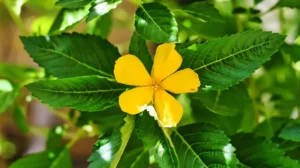
Damiana Leaf
Damiana Leaf Damiana Leaf is an aromatic herb known for its use in traditional medicine, particularly in Central and South America. It is valued for
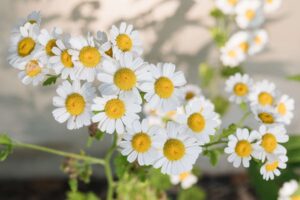
Chamomile Flowers
Chamomile Flowers Chamomile Flowers are small, daisy-like blossoms known for their soothing and calming properties. These flowers have been used for centuries in herbal medicine,
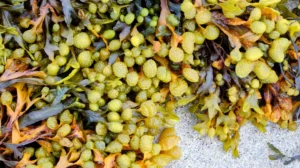
Bladderwrack
Bladderwrack Bladderwrack is a type of seaweed that has been used in traditional medicine for centuries. It is commonly found in the North Sea, the
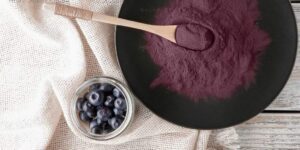
Acai Powder
Acai Powder Acai Powder is derived from the acai berry, a small, dark purple fruit native to the Amazon rainforest. This superfood is known for
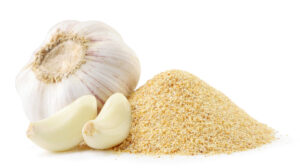
Garlic Granules
Garlic Granules Garlic Granules are a dried and ground form of garlic, offering a convenient way to incorporate the potent flavor and health benefits of
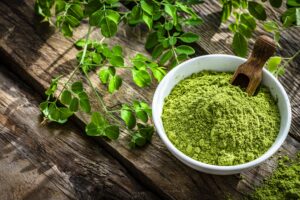
Moringa Leaf Powder
Hibiscus Flowers Moringa (Moringa oleifera), often referred to as the "Miracle Tree," is a highly nutritious plant native to the Indian subcontinent and parts of